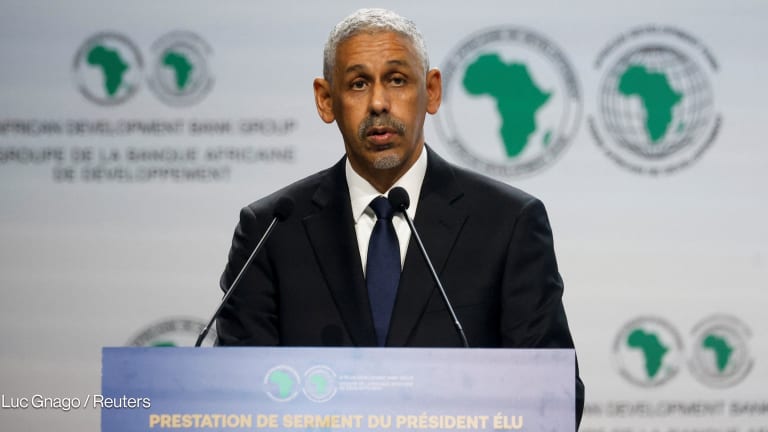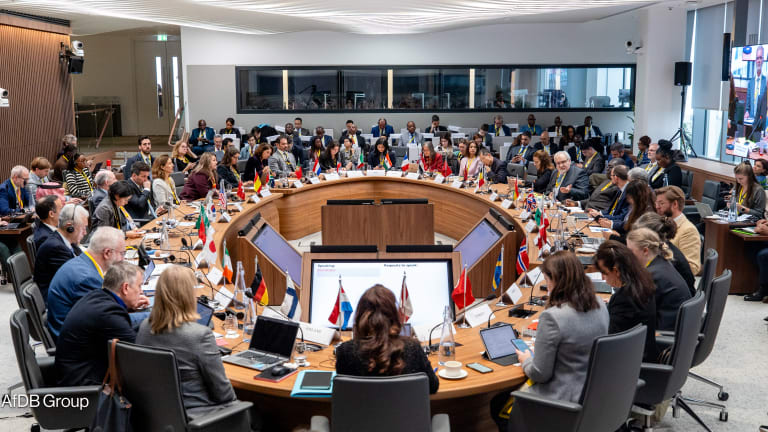Nigeria has officially become the 77th shareholder of the European Bank for Reconstruction and Development, or EBRD — the third of six sub-Saharan African countries set to join the institution.
As other development institutions are scaling back or facing funding constraints, Heike Harmgart, managing director for sub-Saharan Africa at EBRD, told Devex that EBRD’s expansion has been welcomed by African governments.
“Countries have welcomed us warmly in the past, but I think they are welcoming us even more warmly,” said Harmgart.
This story is forDevex Promembers
Unlock this story now with a 15-day free trial of Devex Pro.
With a Devex Pro subscription you'll get access to deeper analysis and exclusive insights from our reporters and analysts.
Start my free trialRequest a group subscriptionAlready a user? Sign in
Printing articles to share with others is a breach of our terms and conditions and copyright policy. Please use the sharing options on the left side of the article. Devex Pro members may share up to 10 articles per month using the Pro share tool ( ).








